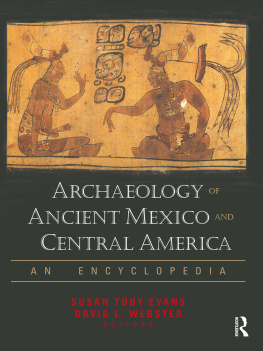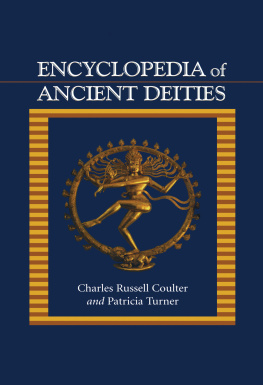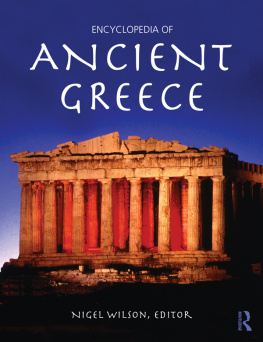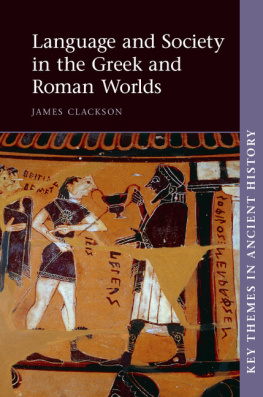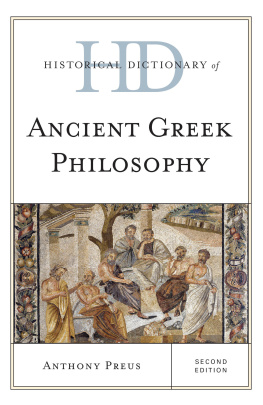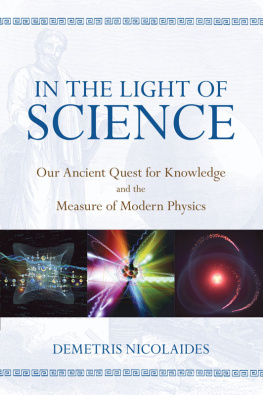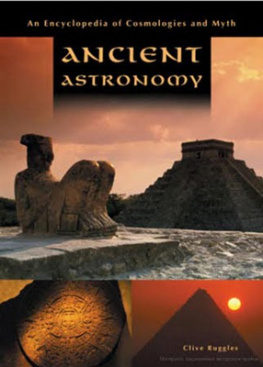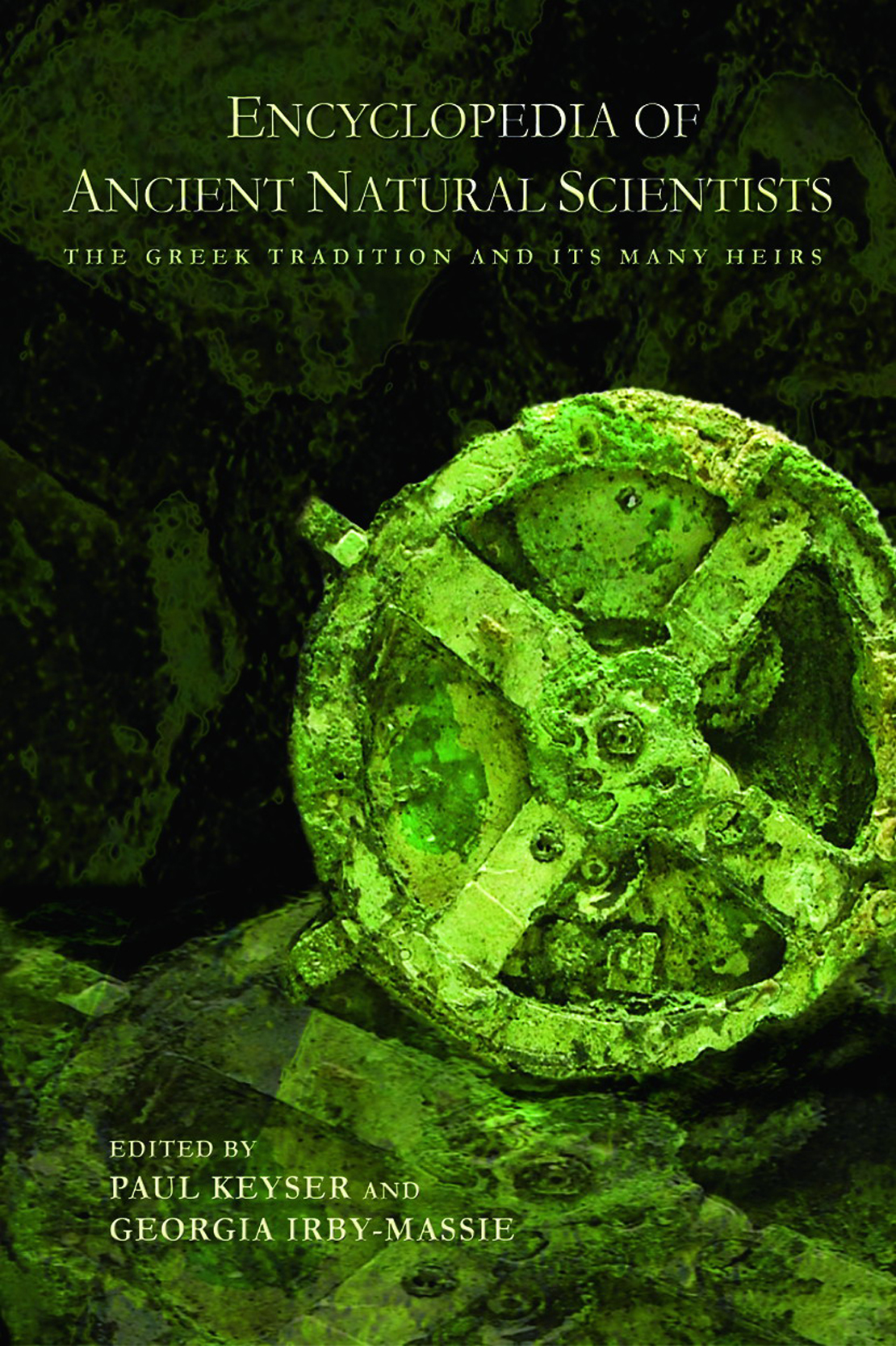THE ENCYCLOPEDIA OF ANCIENT
NATURAL SCIENTISTS
The Encyclopedia of Ancient Natural Scientists is the first comprehensive English-language work to provide a survey of ancient natural science, from its beginnings through to the end of late antiquity. A team of over 100 of the world's experts in the field have compiled this Encyclopedia, including entries which are not mentioned in any other reference work resulting in a unique and hugely ambitious resource which will prove indispensable for anyone seeking the details of the history of ancient science.
Additional features include a Glossary, Gazetteer, and Time-Line. The Glossary explains many Greek (or Latin) terms difficult to translate, whilst the Gazetteer describes the many locales from which scientists came. The Time-Line shows the rapid rise in the practice of science in the 5th century BCE and rapid decline after Hadrian, due to the centralization of Roman power, with consequent loss of a context within which science could flourish.
Paul T. Keyser s publications include work on gravitational physics, computer science, stylometry, Greek tragedy, and ancient science. Formerly a teacher of Classics, he is currently crafting Java for IBM's Watson Research Center.
Georgia L. Irby-Massie is Assistant Professor at the College of William and Mary. Her research investigates reflections of science in literature and society, and includes publications on astrology, geography, natural philosophy in tragedy, and women scientists.
THE ENCYCLOPEDIA OF
ANCIENT NATURAL
SCIENTISTS
The Greek tradition and its many heirs
Edited by Paul T. Keyser and Georgia L. Irby-Massie

First published 2008
by Routledge
2 Park Square, Milton Park, Abingdon, Oxon OX14 4RN
Simultaneously published in the USA and Canada
by Routledge
270 Madison Ave, New York, NY 10016
Routledge is an imprint of the Taylor & Francis Group, an informa business
This edition published in the Taylor & Francis e-Library, 2008.
To purchase your own copy of this or any of Taylor & Francis or Routledge's collection of thousands of eBooks please go to www.eBookstore.tandf.co.uk.
2008 Paul T. Keyser and Georgia L. Irby-Massie for selection and editorial matter; individual chapters, their contributors
All rights reserved. No part of this book may be reprinted or reproduced or utilized in any form or by any electronic, mechanical, or other means, now known or hereafter invented, including photocopying and recording, or in any information storage or retrieval system, without permission in writing from the publishers.
British Library Cataloguing in Publication Data
A catalogue record for this book is available from the British Library
Library of Congress Cataloging in Publication Data
A catalog record for this book has been requested
ISBN 0-203-46273-4 Master e-book ISBN
ISBN13: 9780415340205 (hbk)
ISBN13: 9780203462737 (ebk)
... the person who is used to inquiry tries every possible pathway as he conducts his search and turns in every direction, and, so far from giving up the inquiry in the space of a day, does not cease his search throughout his life: directing his attention to one thing after another that is relevant to what is being investigated, he presses on until he attains his goal.
Erasistratos of Ioulis, Paralysis book 2
(in Galn, Habits 1, CMG S.3 [1941] 12;
trans. by G.E.R. Lloyd, Greek Science After Aristotle [1973] 86, altered)
CONTENTS
(by ethnicity, women scientists, monotheists, poets, rulers, emendations, new in EANS, ancient people not in EANS)
ILLUSTRATIONS
Hippokrats of Khios, 2 Mueller
INTRODUCTION
This work provides a synoptic survey of all ancient, i.e., Greek and Greek-based, natural science, broadly defined, from its beginnings through the end of late antiquity, for the benefit of anyone interested in the history of science. Greek science is a central field for the understanding of antiquity more of Greek science survives than does any other category of ancient Greek literature, and yet much of that is obscure even to classicists.
It is proper to describe the work of the people included herein as science, with no more risk of anachronism than in using any modern term to refer to a corresponding ancient practice, because the ancient models of nature, whether correct or not, were indeed attempts at models. That is, they were created and debated as abstracted descriptions of phenomena, intended to give a naturalistic and self-consistent causal account, of a world viewed as regular or constant in its behavior. Their methods and aims were scientific, even when their theoretical entities or intellectual achievements are ones we now perceive as inadequate. Histories of science must be comprehensive, including all abandoned paths, since roads not taken seem evitable only in hindsight.
I. Scope. Natural science is a conceptual territory which cannot be precisely distinguished from other intellectual activities, and which resembles but is distinct from magic, philosophy, technology, and theology. Science borders on philosophy (we exclude metaphysics, ethics, and epistemology), lies near technology (we exclude writers who only record technological achievements, such as lists of manmade wonders or non-medical cookbooks), has affinity with magic (we exclude theurgy and all incantations, but we include astrology and alchemy), and touches on theology (we exclude divine cosmogonies and the theology of the soul). We prefer to err on the side of inclusion, so that readers working in or near the area of ancient science will be able to consult the work with profit, and thus we include writers and works whose topics lie on our margins, so long as it seems likely that they wrote on relevant topics. Most of the results and theories of ancient science would no longer pass muster as scientific (humoral medicine no more than astrology), but our principle of inclusion is to ask whether the endeavor was to understand or model some aspect of the natural world on the basis of investigation and reason, without recourse to hypotheses about purposive agents, and without reliance on tradition per se.
Texts of ancient writers often survive by accident or despite the ever-changing tastes of copyists and their patrons. Textual remains rarely represent what contemporaries would have agreed were the most important works: Strabn for example seems almost unknown to his contemporaries, who cite and use works now lost. Many lost works, known to have been widely read and very influential during antiquity, perished only later. Thus, to present only or even primarily what is now extant or canonical is to distort. As a result, we include the obvious major authors, but also all the lost, fragmentary, obscure, and anonymous scientific writers whom we can. However, we include only authors known to have made some written or conceptual contribution, but not practitioners, such as architects and physicians, however famous or accomplished. Likewise, teachers, however important they may have been to their students, or for the transmission of ideas, we include only if they themselves made a contribution. Despite the plausible presumption that most of the adherents of the schools of Plato, Aristotle, Z

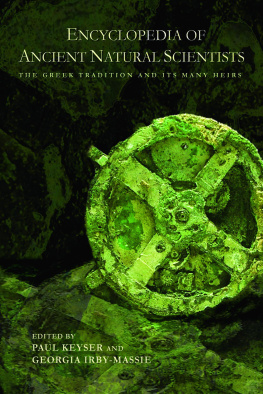
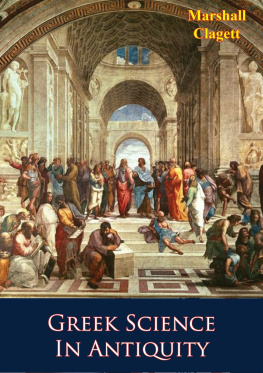
![Michael Lovano - The World of Ancient Greece: A Daily Life Encyclopedia [2 Volumes]](/uploads/posts/book/268736/thumbs/michael-lovano-the-world-of-ancient-greece-a.jpg)
